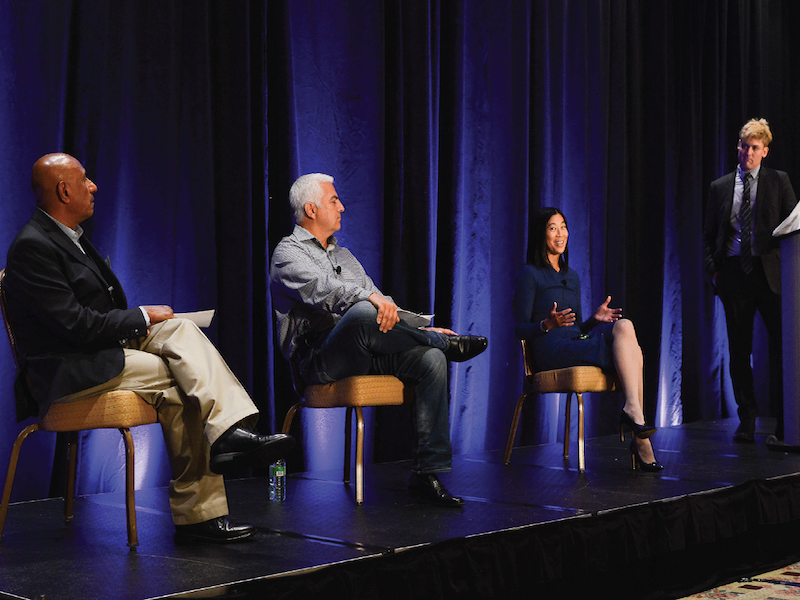
The recent emphasis on environmental, social and governance issues among pension investors will continue to dominate industry conversations in the future, according to a panel discussion with three high-profile figures in Canada’s investment sector during the 2021 Global Investment Conference.
“If I could rename ESG, it would be GES,” said Alain Malaket, chief executive officer of InBenefits. “Governance has always been a pillar of what we do in terms of this kind of assessment.”
Read: The green shoots of Canada’s green bond market
While Malaket may favour changing the order of the letters in the acronym, it isn’t because he believes the environment should be considered unimportant. “The governance referred to in ESG is just a sliver of what we do. It’s hard to say we put too much of an emphasis on the ‘E’ given that we had two presentations that touched on the global urgency in terms of climate change.”
Angela Lin-Reeve, senior portfolio manager of pension investments at the Royal Bank of Canada, agreed that governance issues referred to in ESG don’t cover all governance-related issues performed by the pension sector, its regulatory bodies or the government. “The government has always been involved in investing, so perhaps that is why you don’t hear as much about governance issues when we talk about ESG. It’s my hope that, some day — and it might take a very long time — that the ‘E’ and the ‘S’ may also drop off. It just becomes part of investing.”
Read: U.S. proposing ESG investing rules for plan sponsor fiduciaries
The approach taken by institutional investors has undergone a series of transitions in recent years, she noted. For instance, in the years leading up to the global coronavirus pandemic, there’s been an expansion of the responsible investment umbrella. In addition, the development of socially responsible investment funds that base decisions on a negative screening occurred shortly before plans began incorporating ESG criteria into the investment process and into the impact investing era.
“Now, you have ESG investors who are looking for a return opportunity,” said Lin-Reeve. “Further out, you have investors who want to make a social change. They might seek out impact investing without a non-financial goal. Then, there is the unicorn, which is the impact investing that serves the dual goal of making a high rate of return and making positive social change. It might take another pandemic or major world event to give us the data point to see if this kind of investing can really live up to its expectations.”
Read: Expert panel: Climate change putting spotlight on ESG issues for pension plans
Rashid Maqsood, vice-president for treasury at Rexel North America Inc., also noted the approach taken by corporations regarding ESG investments has undergoing an evolution. “If you have been following the bond market, you will remember that, three or four years ago, there were a lot of what we call green bonds. These were more dedicated or attached to projects. What is happening in the bond market is that these bonds are enlarging. They are being issued for companies that are sustainable, not just for individual projects.”
Recently, Maqsood was involved in the issuing of a more modern version of the green bond — a sustainability bond — from his company. The issuer committed to an emissions reduction of 25 per cent in three years and 45 per cent after seven years. “I think other big companies are on that path,” he said. “I think the next big thing will be if the federal government gets involved. I would love to see it put a commitment behind it.”
Read: Caisse, CPPIB, PSP focusing on ESG, sustainable finance with new initiatives
Companies can also benefit from Canada’s robust corporate bond monitoring culture, he added. “In Canada, you can’t just say, ‘I’m going to issue a sustainable bond.’ You have to build a lot of rapport with the investment community. I don’t see any greenwashing in our case.”
According to Malaket, institutional investors have a role to play in pushing for ESG issues to be better understood by corporate leaders. “If we actually voted proxies and if we actually took some of these initiatives with a little more commitment, I think we could change how some of the corporates are running the show. . . . I believe education is a big hurdle. We need it at decision-maker level, whether it is the boards of trustees or the chairs that are trying to lead these initiatives.”
